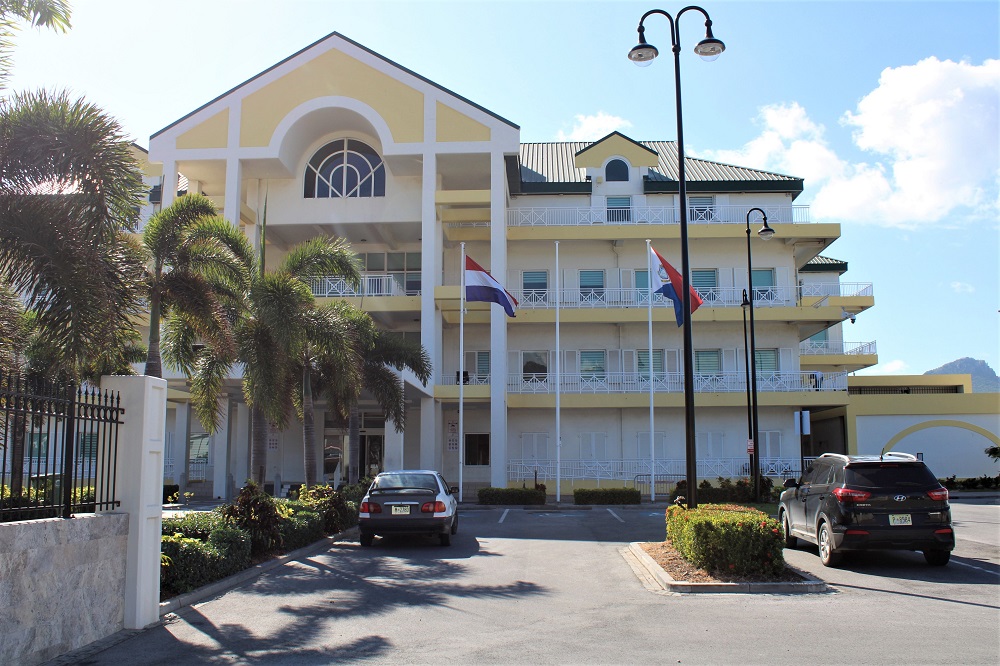Mysterious Dutch consortium interested in refinancing St. Maarten’s debt

PHILIPSBURG -- Independent MP Grisha Heyliger-Marten has lit the fire under a discussion about the refinancing of debts that include Dutch liquidity loans and possibly also the loan from the European Investment Bank for the airport reconstruction.
According to our information, a Dutch consortium spearheaded by a Dutch fiscal law expert name Jacob A. Miedema is interested in refinancing these loans, providing that the Dutch government will guarantee the deal.
There are of course some issues with the story. The name of the consortium and the people associated with it remain a mystery for the time being and the status of Miedema is also unclear.
The main question remains: why would St. Maarten enter into a commercial deal if the financial conditions offered by the Netherlands are unbeatable?
Let’s take a look at some figures first. At the end of 2021, liquidity loans totaled 292 million guilders and the airport loan for the airport was 91 million. Total: 383 million guilders or around $213,966,000.
Refinancing these loans through the Netherlands would cost St. Maarten between zero and 1 percent interest, but The Hague would also impose conditions related to good governance. Information provided to StMaartenNews.com suggests that the consortium would charge between 3 and 4 percent with no payments on the principal during the first ten years.
So what does this all add up to? The Dutch option would cost the government $2,140,000 in annual interest (based on 1 percent); the consortium would charge between $6,419,000 (3 percent) and $8,559,000 (4 percent).
Unfortunately, paying interest does not make loans go away. The government will also have to pay off the principal. If St. Maarten manages to pay off annual $10 million on the principal it would take more than 21 years (so, until 2060) to repay the loans.
If the consortium charged 4 percent, the difference in annual interest would be $6,419,000 and in that case the government could repay $16.4 million on the principal every year: it would take a bit more than 13 years (so until 2045, because the first ten years no such payments are required) to get rid of these loans. It is good to note that politicians in general do not aim to get rid of loans: they refinance them, thereby putting the problems at the door of a next generation.
All these scenarios assume that the country will not be hit by other major disasters that require more liquidity loans to stay afloat.
 Minister of Finance Ardwell Irion cannot be comfortable with the alternative refinancing option, if only because it remains unclear who Jacob Miedema is, or what he represents, and because the name of the consortium and its associated partners remains a mystery as well.
Minister of Finance Ardwell Irion cannot be comfortable with the alternative refinancing option, if only because it remains unclear who Jacob Miedema is, or what he represents, and because the name of the consortium and its associated partners remains a mystery as well.
While the minister seems to be in the dark, MP Heyliger-Marten seems to have more information based on her questions posed to the Minister of Finance in August of this year regarding a virtual meeting held with Dutch intermediaries acting on behalf of this consortium. Her spokesman Xavier Blackman (who became Commissioner for Finance in the Executive Council of the Island Territory of St. Maarten on June 9, 2009) contacted StMaartenNews.com to give a further elucidation on the reason why the Dutch consortium wanted to meet with government. Blackman said that the attempt to refinance the loans through the Dutch consortium must be placed in the context of decolonization.
According to Blackman, MP Heyliger-Marten maintains that the Netherlands “has been exposed by the Pro Soualiga Foundation” and that it admits in a roundabout way that it is violating international law “by organizing a slavery round table conference.”
 It is expected that during the celebration of the abolishment of slavery 150 years ago in July of next year the Netherlands is going to apologize.
It is expected that during the celebration of the abolishment of slavery 150 years ago in July of next year the Netherlands is going to apologize.
It should be noted, Blackman explained, that the Netherlands is no longer prepared “to throw money into a bottomless pit.”
LOGIN TO READ MORE... THIS IS A PREMIUM ARTICLE. YOU NEED AT LEAST YEARLY SUBSCRIPTION TO ACCESS THIS ARTICLE.
...
Some articles or portions of articles are restricted exclusively for our registered members and paying subscribers. Please login here to read the rest of this article. If you do not already have a paid subscription, you will need to register here and pay for a subscription first in order to gain access to our website to read articles or contents that are restricted to paid subscribers. You need to buy at least a Day subscription for 75ct to gain access. Or log in first if you are already a registered paying subscriber to this website. Click here to register and support our work with a paid subscription.


























